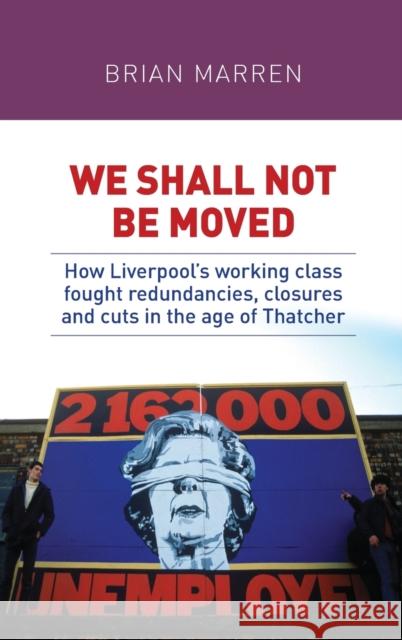We Shall Not Be Moved: How Liverpool's Working Class Fought Redundancies, Closures and Cuts in the Age of Thatcher » książka
We Shall Not Be Moved: How Liverpool's Working Class Fought Redundancies, Closures and Cuts in the Age of Thatcher
ISBN-13: 9780719095764 / Angielski / Twarda / 2016 / 272 str.
We Shall Not Be Moved: How Liverpool's Working Class Fought Redundancies, Closures and Cuts in the Age of Thatcher
ISBN-13: 9780719095764 / Angielski / Twarda / 2016 / 272 str.
(netto: 417,35 VAT: 5%)
Najniższa cena z 30 dni: 432,86
ok. 30 dni roboczych.
Darmowa dostawa!
We shall not be moved provides a detailed analysis of the range and depth of responses by Liverpool's working class to the onslaught of compulsory redundancies, factory closures and government cuts on Merseyside during the age of Thatcher and beyond. The last quarter of the twentieth century brought enormous change to working-class Britons. This transformation came mainly in the form of widespread industrial closure and the penury associated with permanent unemployment. The presence of mounting joblessness was arguably the most pervasive feature affecting both the economy and society of Liverpool during this period and the despair of idleness and economic deprivation blighted Merseyside to a significantly greater extent than any other major British conurbation. Whilst Liverpool and the surrounding Merseyside region had frequently been prone to industrial unrest since 1945, it was the dawn of Thatcher and the rise of neoliberalism that made the city a nucleus of resistance against the encroaching tide of right-wing politics and sweeping deindustrialisation. Using oral history, backed by unique archival sources and statistics, this critique explores six case studies to illustrate how elements of a highly politicised working-class fought against the rapid rise in forced redundancies and industrial closure. Some of their responses included strikes, factory occupations, the organisation and politicisation of the unemployed, embracement of radical left-wing municipal politics, as well as violent civil unrest. This critique concludes that in the range, intensity and use of innovative tactics deployed during these conflicts, Liverpool was distinctive. This book will appeal to university students, post-graduates and lecturers in British social, economic and political history and urban studies.











